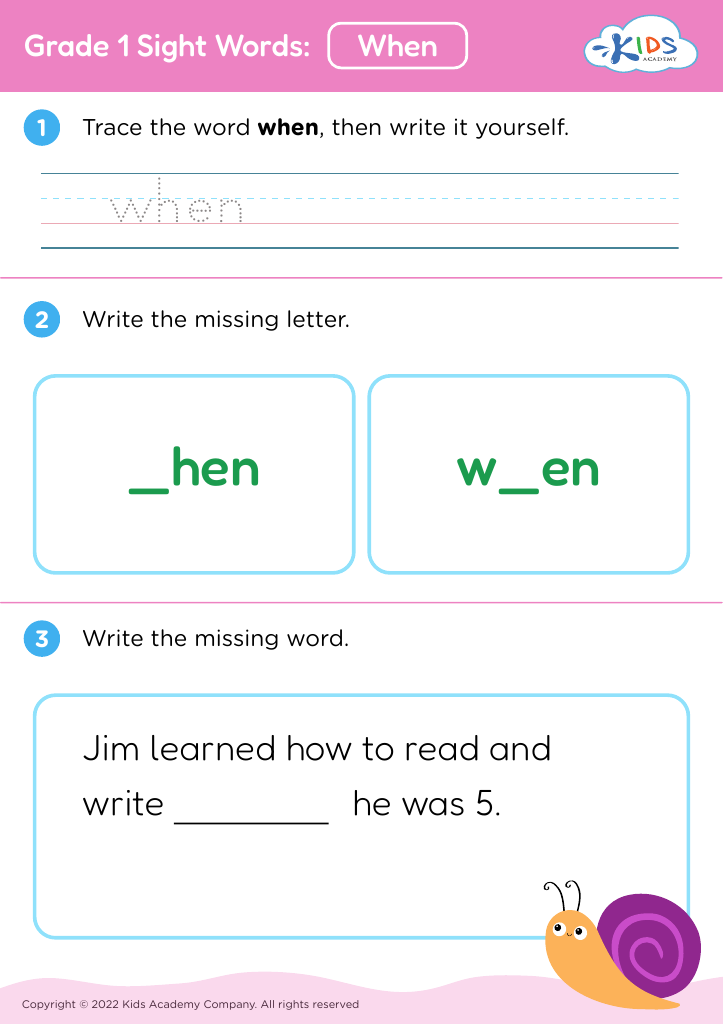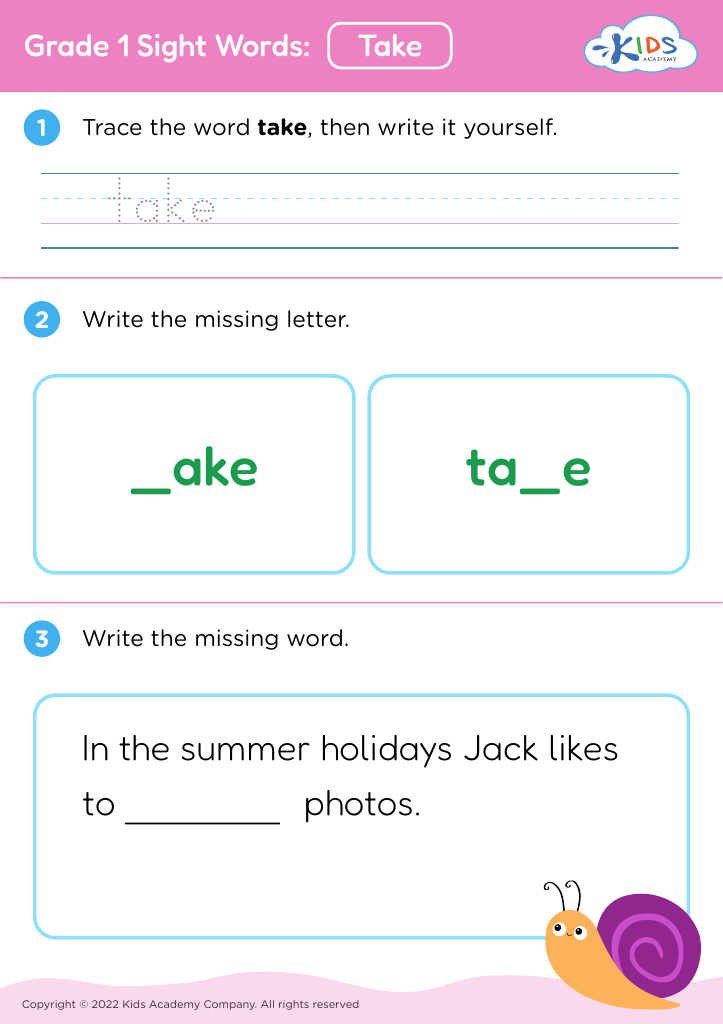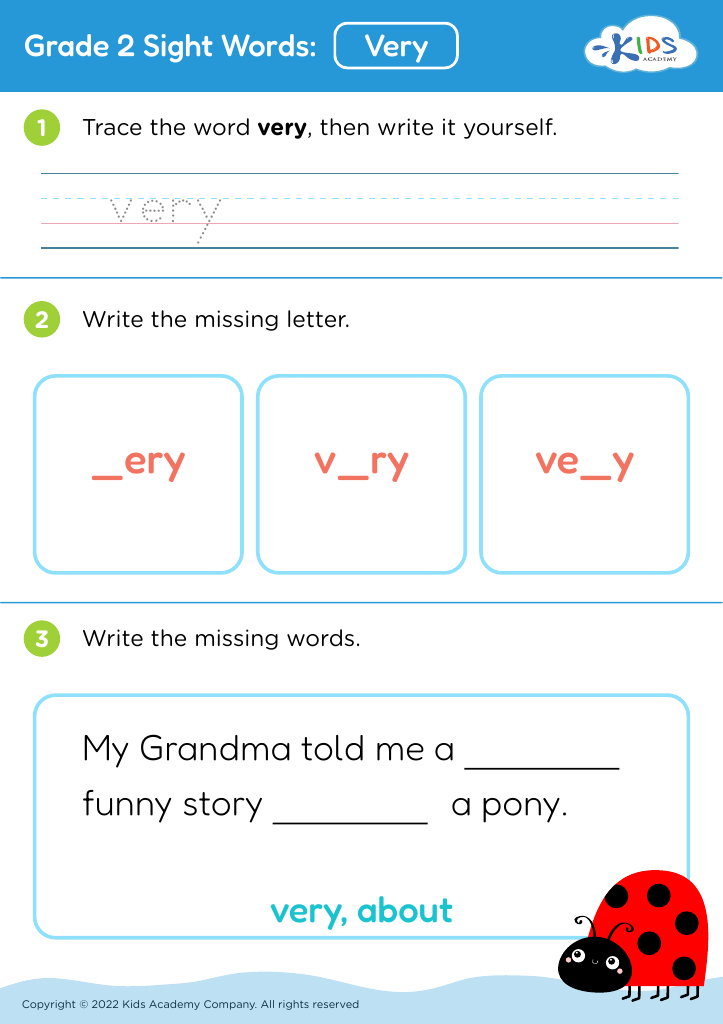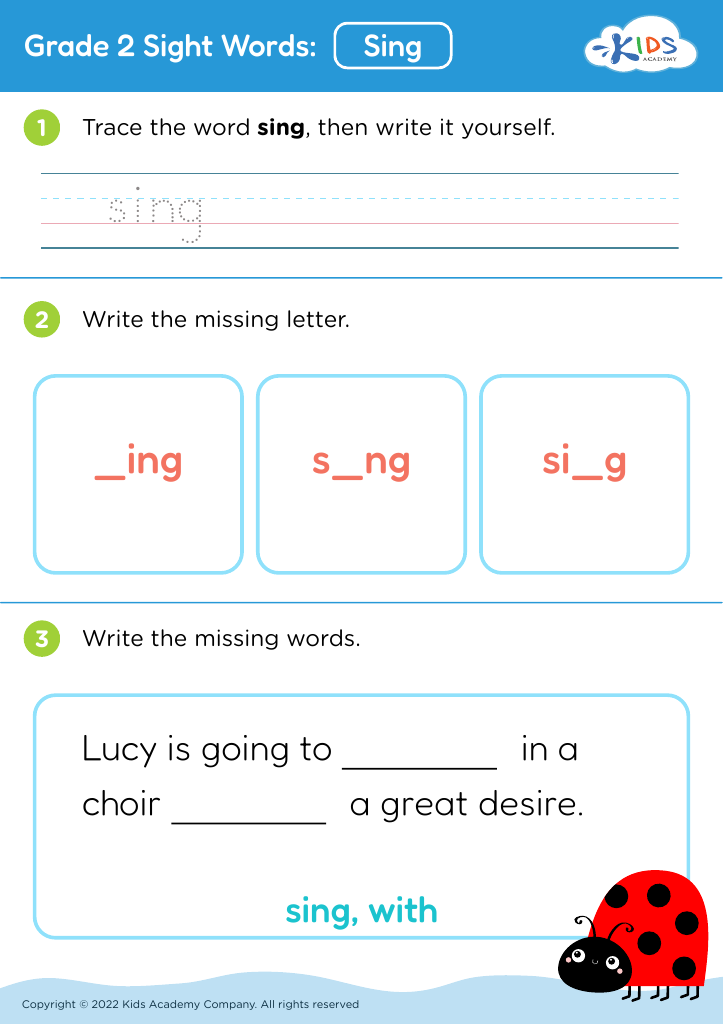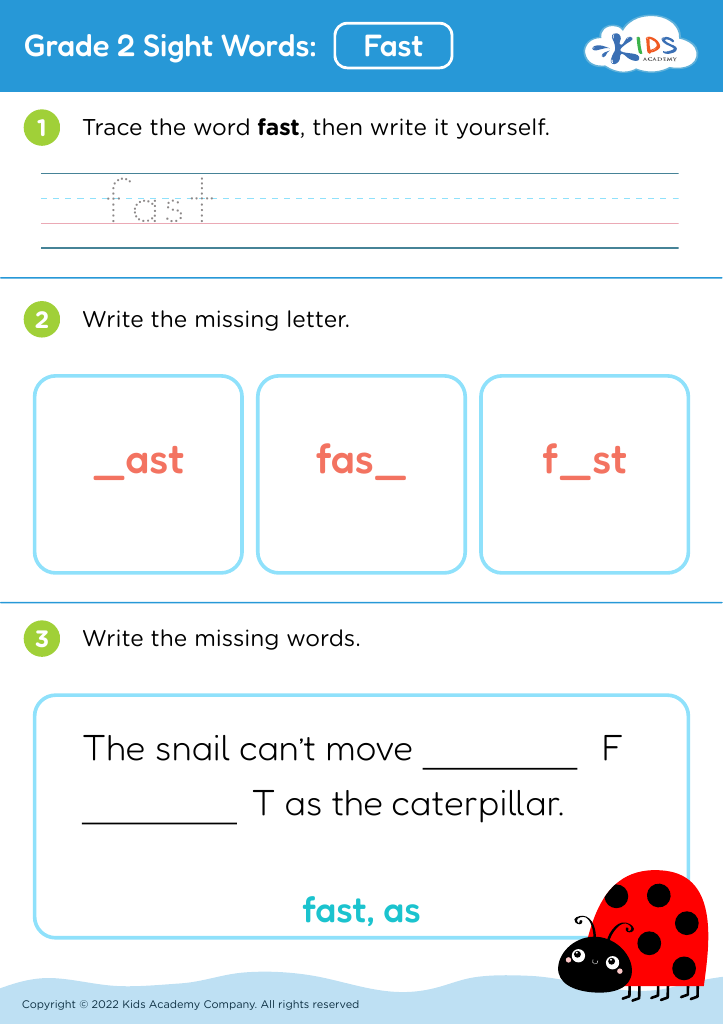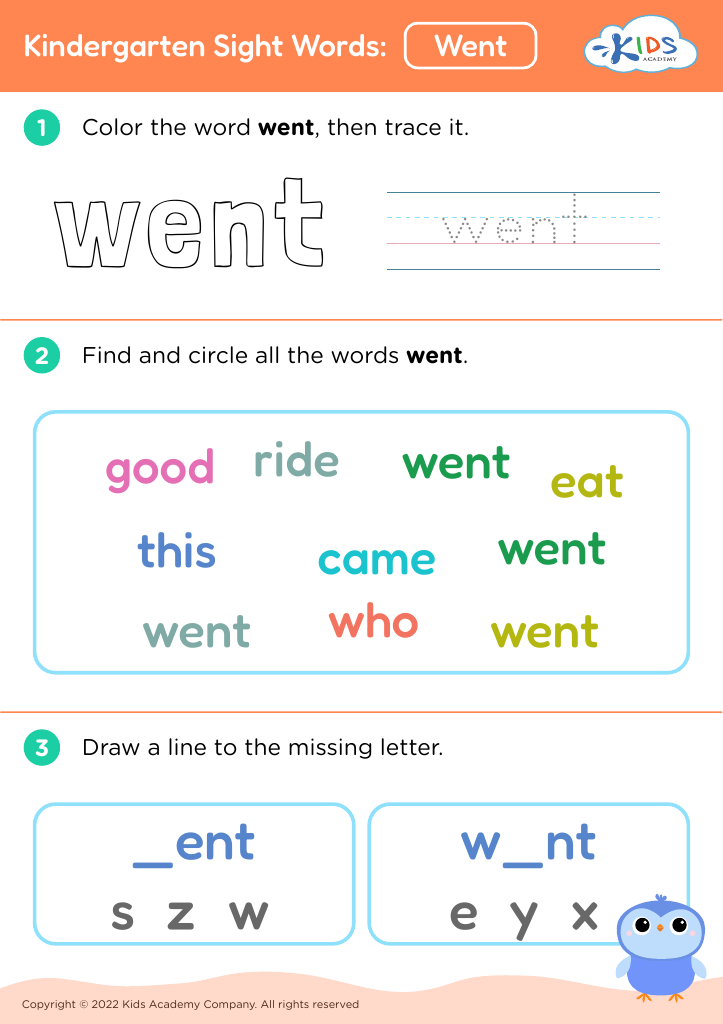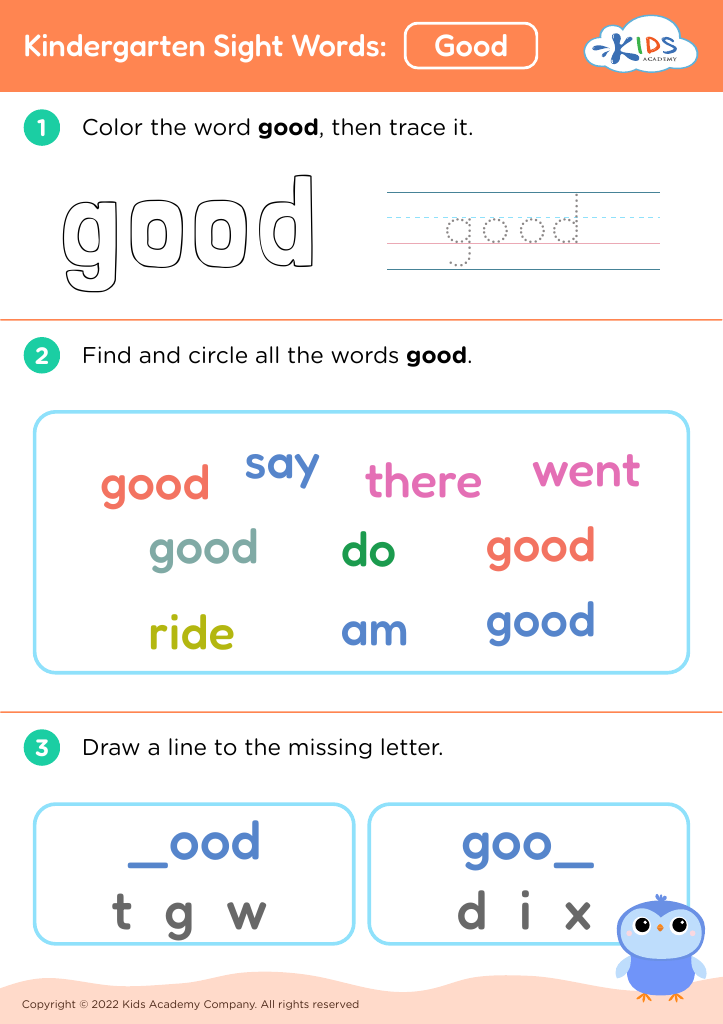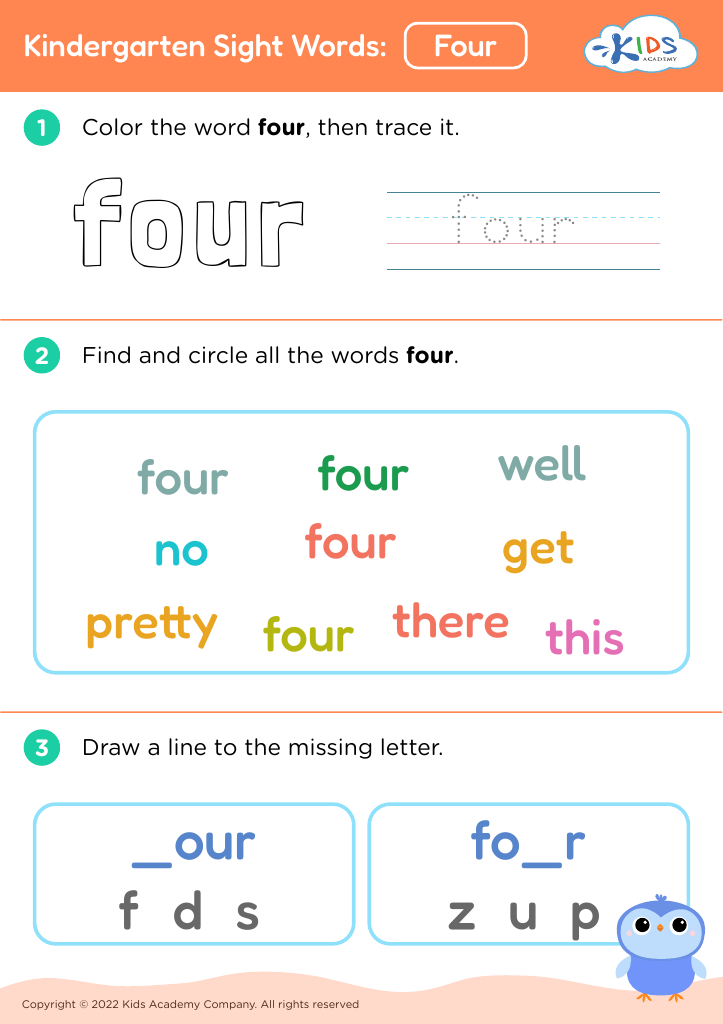Addition Practice Reading Worksheets for Ages 3-7
8 filtered results
-
From - To
Enhance your child's math skills with our engaging Addition Practice Reading Worksheets, designed specifically for ages 3-7. These worksheets combine reading and math in fun, interactive ways, helping young learners master the concept of addition while improving their literacy skills. With colorful illustrations and age-appropriate exercises, kids will enjoy solving simple addition problems and reading related stories. Perfect for homeschooling, after-school programs, or classroom use, our resources promote critical thinking and develop a solid foundation in mathematics and reading. Download our printable worksheets today and watch your child gain confidence and enjoy learning through play!
Addition practice is crucial for children ages 3-7 as it lays the foundation for essential math skills. At this young age, children are developing their cognitive abilities and understanding of numerical concepts, making it an ideal time to introduce addition. Engaging in addition practice can enhance their numerical literacy, promote problem-solving skills, and build confidence in their math abilities.
For parents and teachers, focusing on addition practice can offer numerous benefits. Firstly, it supports the development of critical thinking and logical reasoning as children learn to analyze numbers and solve simple math problems. Secondly, such practice can be fun and interactive, encouraging a collaborative environment where parents and teachers can bond with children, making learning enjoyable.
Additionally, early proficiency in addition can lead to greater achievement in later math concepts, making it easier for children to grasp more complex operations later in their academic journey. The ability to add and comprehend quantities also has real-world applications, helping children make sense of everyday situations, such as sharing and counting.
Overall, incorporating addition practice into daily routines supports a child's cognitive and emotional growth, equipping them with the necessary skills for lifelong learning.
